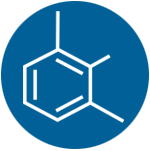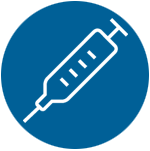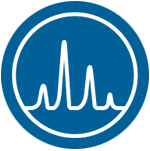For more than 25 years BioAgilytix San Diego, formerly MicroConstants, has been serving the growing biotechnology community on the west coast. Our lab is one of the world's leading bioanalytical contract labs, specializing in research services to support you throughout all stages of the drug development process. We focus on personalized service where you receive expert consultation through one point of contact during your entire project.
Our scientists are available to discuss how our bioanalytical CRO can help you streamline the drug development process through specialized expertise in regulated bioanalysis, DMPK, and pharmacokinetic analysis.

Specializing in developing and validating robust bioanalytical methods for PK/TK sample analysis of small molecules, macromolecules, proteins, peptides, and metabolites using regulated and non-regulated LC/MS/MS, HPLC/UV, and HPLC/Fluorescence. The team has extensive antibody-drug conjugate (ADC) experience with various payloads and linkers. We develop assays that maintain stability for the intact ADC while analyzing for free payload. The team has extensive experience with challenging matrices such as lung and skin tissue and BAL fluid.


Large molecule bioanalysis for proteins, fusion proteins, oligonucleotides, monoclonal antibodies (mAbs), and antibody drug conjugates (ADCs) including both total ADC by total payload analysis and total antibody using digestion to a signature peptide. ADCs with non-cleavable linkers have been digested using various enzymes to determine total ADC concentration in a variety of tissues in addition to serum or plasma. Using the KingFisher instruments and magnetic beads, many extractions can be automated for high-throughput sample analysis.


Assembly and distribution of protocol-specific specimen collection kits to streamline the PK collection process for single and multi-site clinical trials. Kits are tailored to your specific sampling needs. Custom stabilization can be developed and supported for sample collection to ensure accurate and reproducible PK results. Combined with our expertise in method development, other modifiers for urine and CSF collection can be provided to ensure compound solubility for small molecules.


Industry-standard drug metabolism assays, custom research, and IND-enabling studies to assess drug-drug interaction potential, metabolic stability, metabolite profiling, and protein binding. Leveraging extensive experience handling a wide variety of tissue types, the DMPK team also supports tissue distribution studies using cold compounds.

Method Development or method transfers followed byregulatory compliant method validations, for small and large molecule drugs, proteins, peptides, and a wide range of biomarkers using LC/MS/MS, HPLC/UV, HPLC/fluorescence, as well as enzymatic activity methods. All performed in accordance with USFDA and ICH M10 standards, and any other regulatory agencies, as required per protocol.

Pharmacokinetic (PK) and toxicokinetic (TK) data analysis for discovery, preclinical, and clinical studies. We perform model dependent or model independent analyses to calculate bioequivalence, drug exposure, and drug data recovery. The PK/TK team in San Diego also supports SEND compliant data transfers for both the PC and PP domains as required by the USFDA.

Determine the extent of drug binding to plasma and/or tissue proteins during the drug development process. We measure drug-protein binding characteristics to develop a specific and sensitive quantitative method. Protein binding can be performed using ultrafiltration, ultracentrifugation and rapid equilibrium dialysis based on the properties of the compound(s) of interest and needs of the client.
